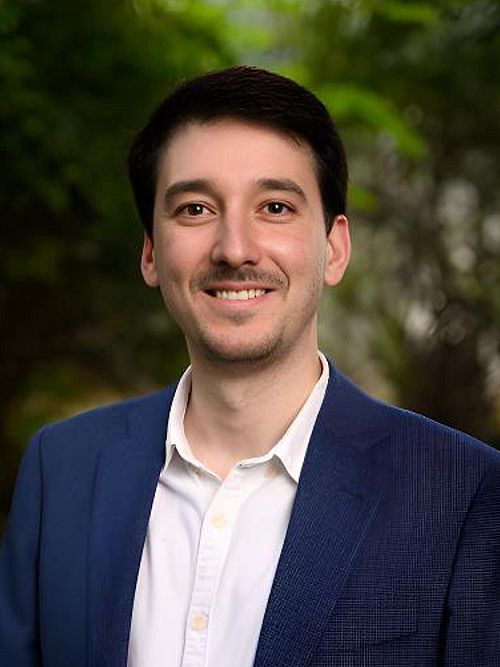
Dr. Javier Francisco
Research Associate
Institute for European Global Studies,
University of Basel
Riehenstrasse 154
CH-4058 Basel
Office 00.013
- European Empires (15th-19th centuries) in the Atlantic World (incl. Indigenous polities)
- Capitalism & the Anthropocene (focus: plantation economies, hunting, deforestation, commodity frontiers)
- Religious missions and their impacts on erudition and geopolitics
- Temporal Regimes of Knowledge
- Historical macro-structures and theory building
“Imperial Methuselah. A Theoretical Approach on European Long-Lived Rule in the Americas” (advanced book project)
Looking at a historical world map of the Early Modern Era, we cannot help but wonder at the rise of European power. Emerging European empires would compete for territories, resources, commercial shares and diplomatic influence all over the world while their metropoles comprised only a small territorial fraction. Until the early 19th century, this expansion was most visible and resounding in the Americas. But what seems to be a linear story of imperial “success” was actually the result of complex developments, economic experiments, societal entanglements, ecological transformations, political turmoil and Indigenous resistance and collaboration.
In this book project I propose a model to account for the interplay of friction and cooperation which resulted in multiple entry points for European expansion and structural cohesion. This study provides a comparative meta-analysis of eight empires and offers a model through which we can better understand imperial longevity in Early Modern America. Thus, the aim is not to replace well-established research on particular empires and colonies but to complement our interpretations with a macro narrative.
Global bio-cultural transformations in the early modern era
Scientists and scholars across the disciplines are increasingly interested in understanding and explaining the loss of biological and cultural (that is to say, bio-cultural) diversity which we are currently witnessing around the world. In my research projects I investigate when these accelerated global transformations started: What were the contributing factors, how did the European empires trigger or accelerate these processes and how did the Indigenous come into play? I focus on case studies in the Atlantic World, though some projects also include parts of Asia and Australia.
Most recent employments:
- Since June 2025, research associate at the chair of Prof. Dr. Corey Ross, Institute for European Global Studies, University of Basel
- November 2020 – April 2025, postdoc at the research graduate school “Empires”, University Freiburg
- January 2019 – October 2020, Fellow at the Max-Weber Kolleg, Universität Erfurt
Most recent fellowships and memberships:
- 2024: member of the Environmental Humanities network, University of Freiburg
- 2022 – 2023: Weatherhead Initiative on Global History Fellowship, Harvard University
- 2022: Member of the Global Environmental Studies Group of Prof. Dr. Jürgen Osterhammel, FRIAS
- 2021 – 2024: Member of the Young Academy for Sustainability Research, FRIAS
- 2021: Heidelberger Akademie der Wissenschaften, grant for a conference
Publications in process (advanced manuscripts or submitted and under revision)
Book
- Imperial Methuselah. Imperial Methuselah. A Theoretical Approach on European Long-Lived Rule in the Americas (manuscript to be concluded end of 2026).
Peer-Reviewed Articles
- “The Spatial Scales of Global History: Reconstructing Institutional Scopes,” Globalgeschichte /Global History, with Fabian Fechner (Long-Distance University of Hagen).
- “Reassessing the Commodity Frontier: temporal regimes of capitalism in frontier regions,” in: Dejung, Christof; Brescius, Moritz von (eds.). Historical Social Research.
- “A Multipolar Earth – a Multipolar Space?” submitted: Nature, with Christiane Heinicke (University Bremen).
Publications
Book
- Die spanisch-amerikanische Jesuitenuniversität in Córdoba, Argentinien. Transatlantische Verflechtungen und gesellschaftliche Verankerung in der Kolonialzeit. wbg Academic, Stuttgart: 2018.
Peer-Reviewed Articles
- “The Two Faces of the Same Coin: Star Trek’s Federation and the Terran Empire,” in: Strand, Emily; Sturgis, Amy H. (eds.). Star Trek: Essays Exploring the Final Frontier. Vernon Press, Wilmington: 2023. Pp. 109–128.
- “Conceptual Framework For Biodiversity Assessments in Global Value Chains,” in: Sustainability, vol. 11/7: 2019. With Stephanie Maier (Fraunhofer Institut), Jan P. Lindner (Bochum University of Applied Sciences). [open-access].
- “‘Para convertir a los infieles’ – Asymmetries in the Global Circulation of Jesuit Personnel,” in: Schmid Heer, Esther; Klein, Nikolaus et al. (eds.). Transfer, Begegnung, Skandalon? Neue Perspektiven auf die Jesuitenmissionen in Spanisch-Amerika. Kohlhammer, Stuttgart: 2019. Pp. 127–146.
- “Das jesuitische ‚Trojanische Pferd‘ im transandinen Vizekönigreich Peru. Sektorale Kooperation und Wettbewerb,” in: Elvert, Jürgen; Elvert, Martina (eds.). Agenten, Akteure, Abenteurer. Duncker & Humboldt, Berlin: 2018. Pp. 189–198. [open-access].
Publications for the General Public
- Young Academy for Sustainability Research (eds.). Welt im Wandel. Fünf Stories zur Umweltkrise. Waxmann, Berlin: 2024.
- TV interview with ARTE on Avatar2. Discussing European colonialism, cultural contacts, environmental changes and Indigenous cooperation and resistance, 18.12.2023
- Podcasts on Sustainability Projects, 2022 – 2023 (interviews and executive producer), open-access: https://yas-podcast.podigee.io/episodes
- Radio interview with the Deutschlandfunk on the influence and perception of the seasons throughout the Early Modern Age, 23.03.2022
- June 2021, Science Slam of the University of Freiburg, open-access
- “Der Verlust der biologischen und kulturellen Vielfalt. Historische Entwicklung und (post-)koloniale sozio-ökologische Landnutzung,” in: BfN Aktuelle Biodiversitätsforschung: 2020.
